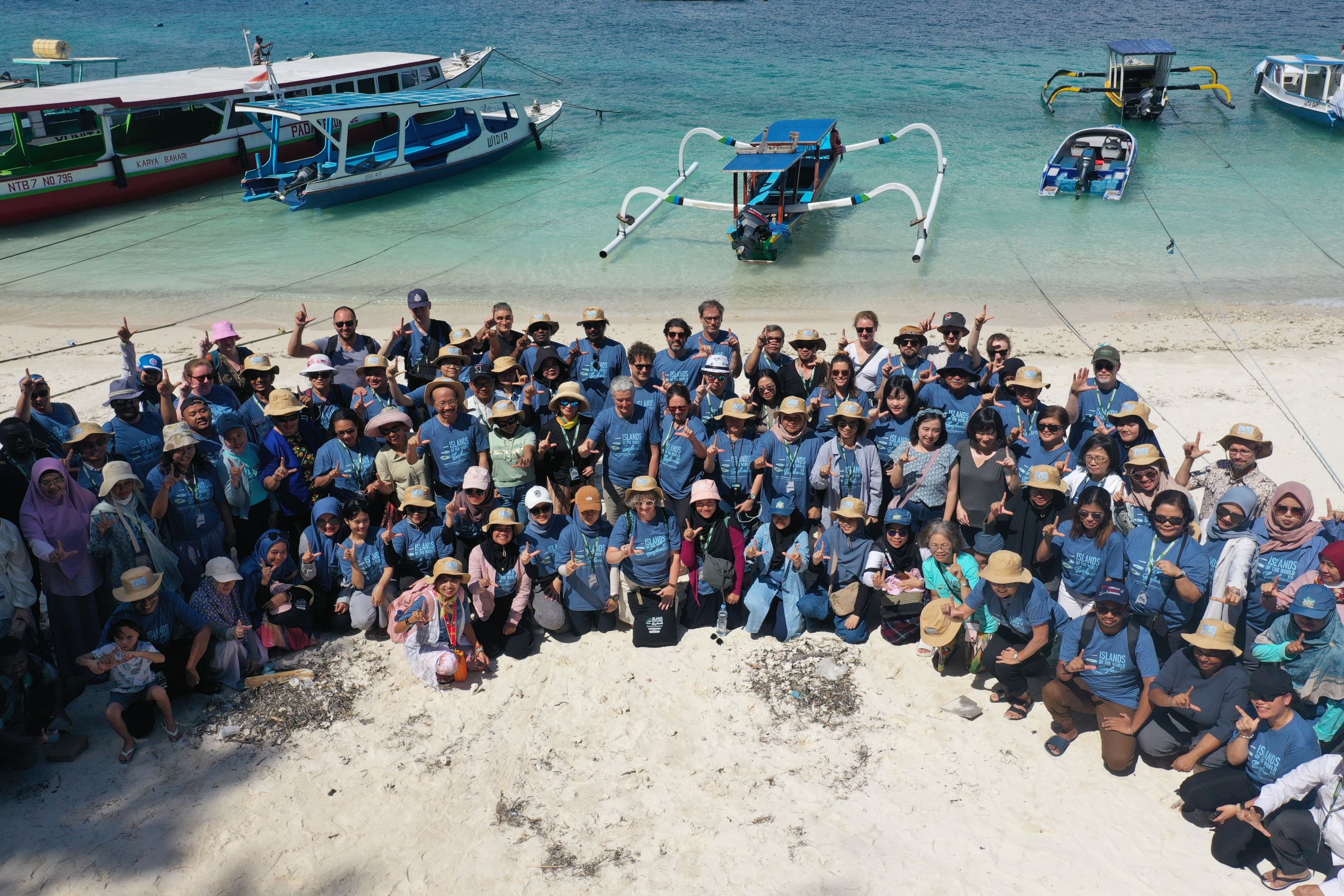Gili Matra Conservation Become the Focus of the 19th Islands of the World Conference Excursion

Mataram, University of Mataram – The University of Mataram (Unram), in collaboration with IPB University and the International Small Islands Studies Association (ISISA) successfully held the third excursion on Friday, 28 June 2024 at Gili Air Island-Lombok.
The series of events of the 19th Islands of the World Conference (IWC) continued with the third excursion session which carried an important topic related to conservation and environmental management through a presentation on “Gili Matra Island Marine Protected Area” delivered by Hotmariyah, S.St.Pi., M.Si. from the National Marine Conservation Area Centre (BKKPN) Kupang.
BKKPN Kupang has been working with Unram since 2021 to protect the environment and ecosystem in Gili Matra (Gili Meno, Gili Air, and Gili Trawangan). The Gili Matra management programme includes handling protected and stranded marine biota; coral reef ecosystem monitoring; beach cleaning; seagrass monitoring; monitoring, supervision and control of marine resource utilisation activities; community outreach; and sea water quality monitoring.
During the session, Hotmariyah explained the importance of Gili Matra as a national marine protected area established by the Minister of Marine Affairs and Fisheries. The regulations used include several important decisions, including the establishment of the area through Kepmen KP No.67/Men/2009 and Kepmen KP No. 34 Year 2022. Gili Matra management plan through Kepmen KP No. 57/KEPMEN-KP/2014 and Decree of the Director General of Marine Management and Marine Spaces No. 62 of 2023.
Furthermore, Hotmariyah explained that the management programme in Gili Matra aims to achieve conservation targets which include 247.50 hectares of coral reefs, coral reef fish, and 102.50 hectares of seagrass. The management targets include monitoring of sea turtles including green, hawksbill and Olive Ridley turtles; sharks including blacktip and white-tip reef sharks; and clams including T. crocea, T. squamosa, T. maxima and T. derasa. Through this protection, effective management of conservation areas is also carried out through institutional strengthening and human resource capacity building.
Threats to conservation targets, such as pollution of the marine environment and destructive utilisation activities, continue to be a major concern in the management of these areas. Therefore, strict control and supervision measures continue to be implemented to ensure the sustainability of Gili Matra’s marine ecosystem, so that Gili Matra is not only an attractive tourist destination but also sustainable.
This excursion provided valuable insights into the importance of cross-sectoral cooperation in protecting the environment and marine biodiversity, providing long-term benefits for the community, and supporting environmental conservation and sustainable development efforts.
The 19th IWC is expected to increase global awareness and commitment to marine conservation, and encourage the creation of policies and best practices that can be applied in various parts of the world. The conference underlined the importance of synergy between government, academia, local communities and the private sector in sustainable development and continuing to maintain and conserve natural resources.
